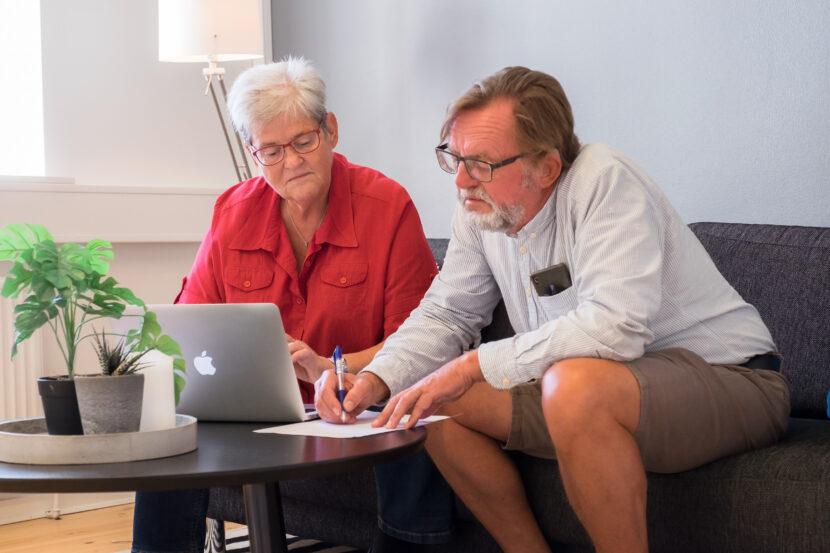COVID-19 has led to new and innovative ways of conducting clinical trials and created the concept of virtual and decentralized trials. The short-term challenges created by the pandemic will impact the role of patients and bring new opportunities for patients to participate safely.
WHAT ARE DECENTRALIZED TRIALS?
The term “decentralized” has become the new buzzword across clinical trials, but what does it mean and how does this affect patients?
Decentralized clinical trials refer to trials that can be completed at home and away from hospitals. Due to the pandemic, participation in clinical trials became difficult and, in some cases, impossible. Patients became reluctant to voluntarily visit hospitals, making participation difficult and creating a demand for an alternative method. Decentralized trials have provided a solution so that research can continue, however this will also impact the role of patients.
Through establishing remote models that utilize technology, decentralized trials allow data collection to be completed at the patients’ homes. Online surveys and wearables help to track health and wellbeing, and communication can also be maintained virtually with research staff by zoom calls and phone calls. Differing from traditional clinical trials, decentralized trials remove or limit face-to-face contact at hospitals or research sites, which transforms patients’ experience.
HOW DOES THIS AFFECT PATIENTS?
Although participating from home places more responsibility on patients in terms of taking their medication and recording data, it will allow more people to participate, as those who have difficulties travelling to hospitals will now have access online. This inclusion of more patients allows clinical trials to reach a segment of the population that may once have been inaccessible.
In a survey that we recently sent out to our members, 13% of those surveyed said that transportation time was the most demotivating factor for participating in clinical trials, and 16% of people said that for them it was the overall time used. Decentralized trials could provide a solution to these problems making clinical trials easier and more accessible.
WHAT DO OUR MEMBERS THINK?
Although transitioning to decentralized trials may create some fear among patients as they take on more responsibilities, it will also allow a greater number of people to access the medicines being tested, as geography will no longer be an issue. For individuals with busy schedules, they will no longer have to make time for hospital visits as everything can be completed from home. With 70% of patients living more than 2 hours away from hospitals, the time and costs saved on transport will make participation easier and faster for patients.
In our recent survey, 48% of people questioned stated that they had no worries at all regarding a fully digitalized trial. This suggests that a large number of patients may be welcoming this new approach to clinical trials. Our members also appeared favourable of a hybrid approach as 57% would like to attend a few meetings at the hospital and the rest at home.
After listening to our members, it is clear that face-to-face contact is the main perceived benefit in clinical trials. Our founder Henrik Vincentz told us, “Participating in clinical trials at hospitals gives patients access to experts face-to-face. These experts are knowledgeable about patients’ conditions and can pass on this information to them. I don’t think we should drop face-to-face contact as it makes patients feel safe, however it is necessary that we find a good balance that can be adjusted for each patient and their needs.”
LISTENING TO PATIENTS AND TRIAL PARTICIPANTS
At James Lind Institute, it is our priority to continue to listen to the needs, worries and wants of patients so that we can adapt future trials. Our recent survey helped us to gather information on our members concerns regarding decentralized clinical trials and what is important to them. We value communicating with our members so that we can take a patient centric approach.
Our founder, Henrik Vincentz, an expert in patient engagement and clinical trials, emphasized the importance of communicating with our members and making their voices heard. “We must listen to patients so that we can understand and eliminate the obstacles they are facing. We need to remember that what we do is for the patients and in their best interest. It is crucial that we make the clinical trials process a good experience, easier and safer.”
Prior to the decentralization of many trials, 85% of trials would fail to retain enough patients and 50% of clinical trials participants find it difficult to stay enrolled due to poor health. If we can help patients to feel safe and informed during this transition to decentralized trials, we can reduce these obstacles, accelerating patient engagement and increasing participant diversity. Most importantly, we can make participation easier and available to a wider range of participants.
THE FUTURE OF CLINICAL TRIALS
Despite the coronavirus pandemic bringing many challenges for clinical trials, it has also shone a light on the importance of patient participation in developing new medicines. The involvement of participants in testing and contributing to the development of the coronavirus vaccine has created a new level of awareness surrounding clinical trials.
Whilst many people remain apprehensive in these unprecedented times, clinical trials becoming a public conversation will bring benefits for trial participation in the long run, so that new medicines can continue to be developed in a way that is easy, safe and simple for patients.
Written by
Eloise Healey

